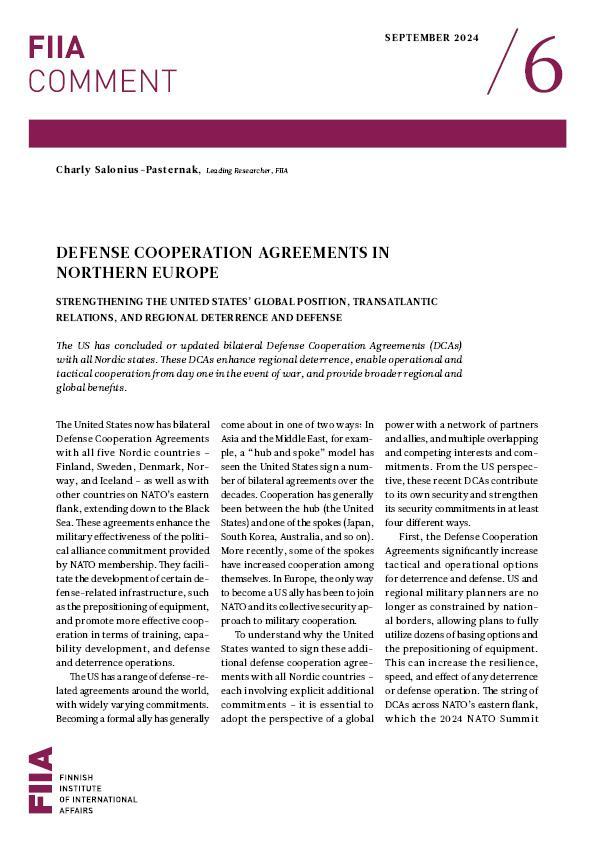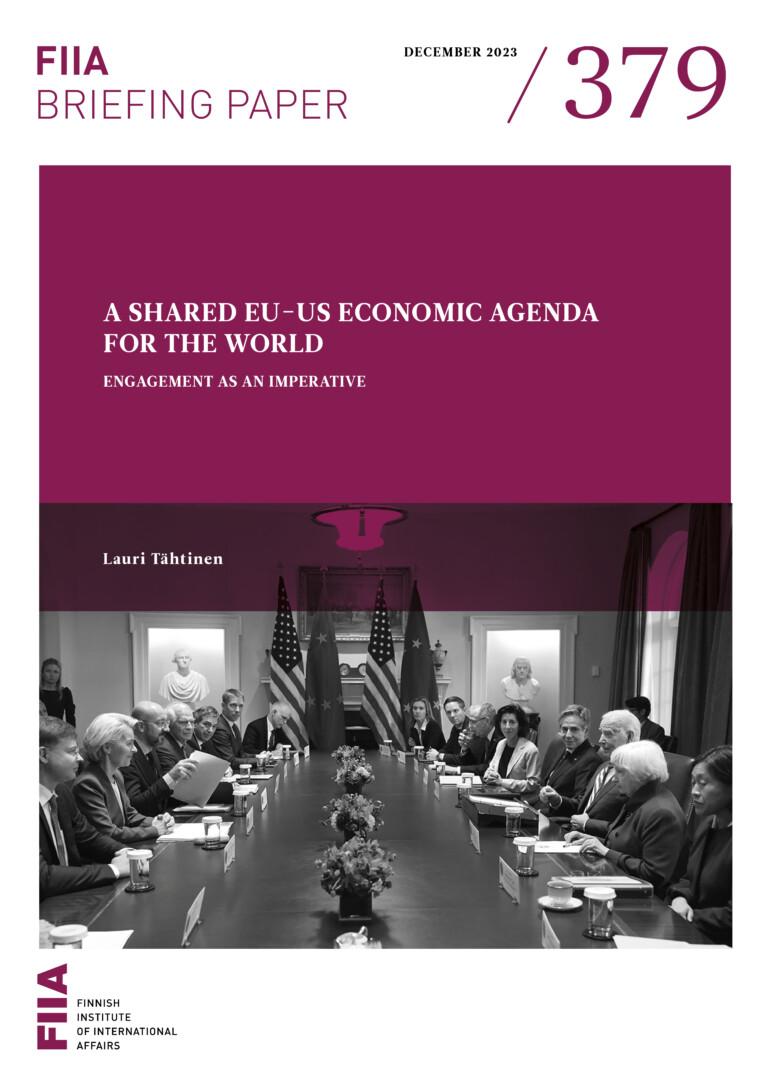Together with its own domestic politics priorities, the US Congress has an impact on US foreign policy both indirectly and directly, and plays a part in the decision-making process in US foreign policy. The placement of NATO soldiers in Estonia and the negotiations over the TTIP agreement are examples of US foreign policy discussions and decision-making being a part of the more concrete procedure, also in discussions held at the European level. The sanctions passed by Congress are one example of the way in which domestic actors have an effect on the shaping of US foreign policy and how sanctions are possibly used in part for domestic politics purposes.
This working paper aims to consider the effect of the US Congress on American foreign policy decision-making both from the separation of powers and theoretical frameworks perspective and through practical examples. Even though the constitutional framework grants the President commander-in-chief powers, the US Congress has the power to be party to the decision-making process on committing US armed forces to hostilities. Topical discussions concerning the separation of powers and war-making have included the Libyan and Syrian crises as well as the more recent possible authorization for the use of force against ISIL.
The working paper illustrates the multidimensional role of the US Congress in US foreign policy-making, which is based on the constitutional powers of Congress and the political culture in the United States. Congress can, through direct or indirect means, exert an influence on the government’s foreign policy procedure and the President’s ability to act in certain circumstances. As a result of partisan polarization, domestic politics also have an increasing effect on the relations between Congress and the President in foreign policy-making. These relations will be mapped in more detail in the working paper by explicating the topical questions surrounding the separation of powers problematique.







